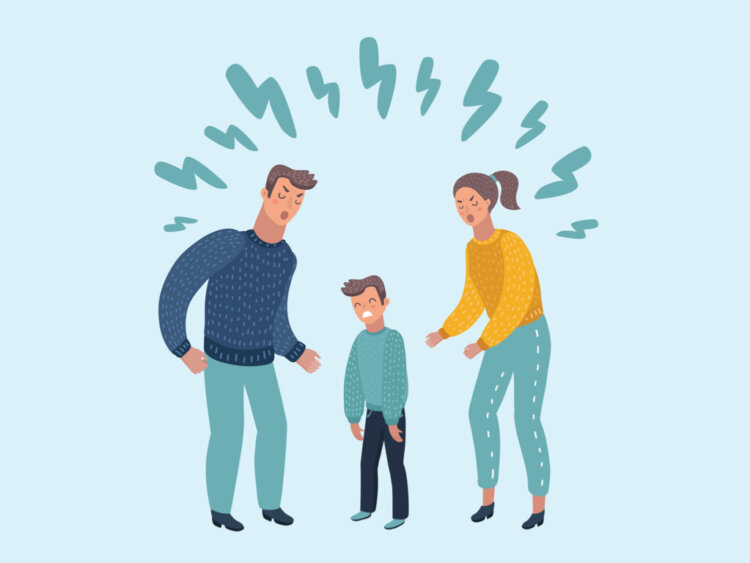
Tired of yelling at your kids, but don’t know how to stop? Do you feel like it’s the only way they will finally listen to you?
If you’re like most parents, you don’t yell because you want to make them upset—you yell because you feel like you’re out of options. You love them and don’t want to wound them, but sometimes you get to the end of your rope.
I confess, I was a yeller. But when my children were very young, I set out to stop yelling.
It was a challenging habit to break. But I was able to do it. And if I can, you can, too!
Before we get to the tips that help us stop the tendency, check in with yourself and answer a few questions so that you can pinpoint your tendencies:
- How many times have I yelled at my children in the last week?
- What were the situations that I chose to yell at them?
- How many were instances where I wanted them to do something and I resorted to yelling to get them to obey me?
Tip #1: Identify whether it’s a generational pattern.
My dad was a yeller, so it was modeled to me. My father inadvertently taught me that parents can yell at their kids. I had to see this pattern in order to stop it. Recognizing a pattern can be a powerful first step toward creating a new one.
Tip #2: Ask yourself if you believe that your children won’t obey you unless you yell at them.
Whatever you believe is what you will experience. If you’ve heard yourself say, “My children don’t obey me unless I yell,” consider the possibility that you are creating that reality. Change your belief to: “I am grateful my children are obedient. I am a composed parent who communicates effectively with my children. They listen and obey me.”
Tip #3: Accept that you need to learn some new communication skills.
Consider the possibility that your efforts to communicate your desires to your children are ineffective, so you resort to yelling. Are you doing something else while giving your children instructions?
For example, maybe you’re getting ready to go somewhere and you need them to put on their shoes. Most likely you are running around getting yourself ready to go, and at the same time telling them what you want them to do.
Instead, stop what you are doing, go and tell each of your children exactly what you expect from them. Use a calm and honoring tone of voice with this setup statement: “What I want you to do is _____________, and it needs to be done by this time ______________.”
Have them repeat this back to you. Thank them for being so cooperative.
Tip #4: Know that you are more prone to yell when you are tired, hungry, and need a break from your children.
Start taking care of yourself so you feel less of a temptation to yell. When you feel good, you will stay more patient and composed. If you do start to yell, check in with how you’re feeling. Do you need to eat? Or take a moment alone in another room? Set an example to your children of how to meet their needs by meeting your own.
Tip #5: Realize that it will take time to change this pattern.
Since yelling has become a habit, your children don’t listen to you until you yell. Stay positive and committed.
Most importantly, be patient with yourself as you break this habit. Believe in yourself. If you fall back into your old habit and find yourself yelling, instead of giving up completely, forgive yourself and carry on.
Tip #6: Empower your children to speak up to remind you that it’s dishonoring to them when you yell.
When my children were in grade school, I met with each of them privately and apologized to them for yelling. I admitted that it was not honoring of them and it scared them. I told them to use the following phrase with me when I lost my cool and started to yell: “Mom, the way you are talking to me is not honoring of me, please stop.” Having my children call me out only needed to happen a few times for me to seriously commit to changing the pattern of being a yeller to becoming a non-yeller.
Tip #7: Recognize that feeling guilty is not an effective motivator to stop yelling.
When you feel bad about yourself, you are more likely to make choices that dishonor you and others. Rather than feel guilty, be accountable and commit to stopping the yelling.
Tip #8: Invite your children to join you as you stop yelling.
If you are a yeller, you have taught your children to yell back at you and their siblings. You have modeled to your children that yelling is an acceptable communication option.
Rather than disciplining them for yelling, recognize your role in it, and ask them to join you in becoming a non-yelling family.
Imagine what life in your home will be like when you are no longer yelling. What will your children experience? What will you experience as a parent?
Since you have the desire to stop yelling, you are already succeeding! It’s within your power to create the family atmosphere that you want. You can do it.
Carol Tuttle is the author of The Child Whisperer: The Ultimate Handbook for Raising Happy, Successful, Cooperative Children. Find more of her parenting advice through her articles and podcast at TheChildWhisperer.com.


Grok Nation Comment Policy
We welcome thoughtful, grokky comments—keep your negativity and spam to yourself. Please read our Comment Policy before commenting.